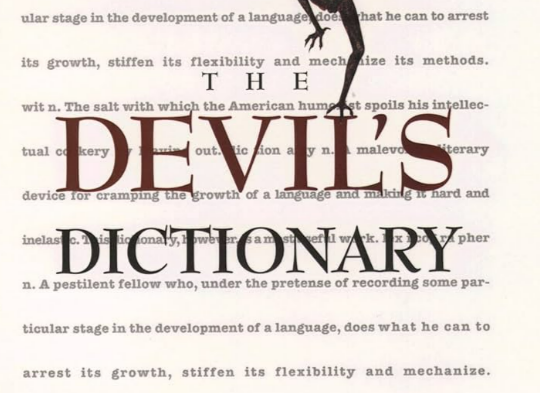Chapter L
byChapter L opens with a stark look at Labor, which Bierce describes as an effort not for personal gain but for the benefit of someone else—typically an employer or master. This definition frames labor as a one-sided transaction in which toil and time are exchanged for minimal return, questioning the dignity often associated with hard work. He implies that work, praised as virtuous, often disguises exploitation beneath the language of duty. Bierce’s entry calls attention to how society masks inequality with moral rhetoric, reframing necessity as nobility. The theme continues in Land, which he presents not as nature’s gift but as a battleground of ownership, exclusion, and legal theft.
By describing Land as a right that prevents others from even passing through, Bierce turns traditional ideas of property on their head. He mocks how the concept of land ownership—seen as foundational to civilization—often upholds privilege at the cost of freedom. Ownership, in this view, is not a symbol of stability but a tool of division. The right to land, once shared among all, becomes a means of separation when controlled by law. His cynicism highlights how power shapes definitions, turning what should be shared into what must be fought over.
Language is next, described not as a bridge but a weapon. Bierce defines it as a way to manipulate, impress, or deceive, depending on who is wielding it. He notes how eloquence can be used to mask emptiness and how words often serve as bait rather than truth. By calling it a tool for seduction rather than understanding, he exposes how communication is often more about control than connection. His perspective challenges the romantic view of language as a noble human trait, framing it instead as a strategic game of influence.
The myth of Laocoön, referenced in the same section, is presented as symbolic of humanity’s doomed resistance to overwhelming forces. Bierce uses the image of a man strangled by serpents to reflect on futile struggles—whether against destiny, society, or one’s own limitations. The tragedy becomes universal, a metaphor for the common human experience of being bound by systems we can’t escape. From this, he shifts into Laughter, which he defines not just as a response to humor but as a social virus. Its involuntary nature distinguishes humans from animals, yet he questions whether this reflex elevates us or merely exposes our absurdity.
Law and Lawyer come next, with Bierce delivering scathing definitions. He portrays Law not as justice, but as a codified expression of the will of the strong—adaptable, ambiguous, and rarely impartial. Laws, he argues, change with time and interest, making them more political than moral. The Lawyer is then depicted as someone who profits from these contradictions, interpreting rules to the advantage of whoever pays best. Instead of guiding society toward fairness, the legal profession becomes a performance, where mastery of loopholes trumps ethics.
With Liberty, Bierce peels back the idealistic veneer and exposes it as a concept everyone supports in theory but few grant in practice. It is celebrated loudly but constrained quietly. Liberty, he says, becomes more of a patriotic slogan than a lived reality, especially when those in power define its limits. Moving to Life, he doesn’t try to romanticize existence. Instead, he portrays it as a temporary phenomenon filled with confusion, effort, and occasional bursts of joy. It’s a stage that ends abruptly, without rehearsal or encore.
Love, far from being sacred, is rendered as a form of emotional madness. Bierce paints it as irrational devotion, often blind to reason, risk, or consequence. Instead of uplifting love as noble, he suggests it’s a temporary mental disturbance with long-lasting effects. It’s not passion but delusion that defines it, according to his interpretation. This is Bierce at his most biting—transforming the most cherished ideals into puzzles of contradiction.
Finally, Luminary receives his sarcasm, defined as a figure praised more for how brightly they appear than for what they actually illuminate. These are the experts, thinkers, or celebrities who command attention without necessarily offering substance. Bierce warns against mistaking visibility for wisdom. In many ways, this entry wraps up the chapter’s theme—how appearances deceive and how language sustains illusions. With each word, he strips down assumptions to expose uncomfortable truths, using satire not to mock thought, but to deepen it. Through these definitions, Bierce pushes readers to examine how society labels things—and why.

